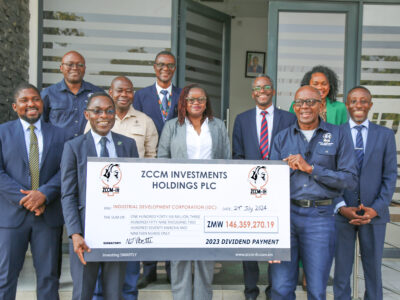The African Forum and Network on Debt and Development (AFRODAD) Executive Director, Jason Braganza, has described Zambia’s debt restructuring experiences an interesting case for other countries in the region.
According to Branganza, Zambia as the first African country to engage the G20 Common Framework for its debt restructuring made an interesting case for other countries who could pick lessons and experiences.
He said this on Friday when moderating a panel at the third African Conference on Debt and Development (AfCoDD III) in Dakar, Senegal.
“Zambia is an interesting case as it is the first country to walk to the G20 common framework for debt restructuring and come to some kind of partial deal with some of its creditors but also having implemented an extremely difficult International Monetary Fund (IMF) programme,” he said.
In June this year, Zambia reached an agreement on a comprehensive debt treatment with its Official Creditors under the G20 Common Framework after several years of back and forth.
Read more: Zambia’s debt restructuring experiences put on spotlight at Senegal conference
The debt restructuring agreement covers about US$6.3 billion of Central governments’ debt owed to external bilateral creditors.
Zambia is, however, yet to finalise this deal by signing a Memorandum of Understanding with its creditors.
In presenting Zambia’s case, Centre for Trade Policy and Development (CTPD) Executive Director, Isaac Mwaipopo, viewed the agreement with bilateral creditors as problematic.
Mwaipopo backed his comment by citing one of the clauses in the provision that talked about the debt carrying capacity.
“The bilateral debt was agreed in a manner that still will give us problems within the principles that have been agreed and how the debt can be restructured. There are clauses or provisions that are likely to prove problematic as we go
“An example is on debt carrying capacity. There are provisions within these principles that are indicating that should there be improvement in the performance of our economy, our debt carrying capacity will also be changed in that we will actually increase the amounts that we are expected to pay.
“As Civil Society Organisations (CSO), we find such provisions to be problematic and not entirely sorting out the problems that we have as a country,” he said.
Another concern highlighted by Mwaipopo was the impression given by the authorities that Zambia’s debt had been cancelled.
He described this type of communication as misleading to the public.
“The second aspect is the way our leaders are communicating information from the G20 common framework. So there is this message that is being shared by the public that give an impression that our debt has been resolved and to a larger extent what we are seeing is that this is misinformation. Our debt has not been cancelled, we still have obligations that we still have to pay,” he said.
Malawi through Bertha Phiri, Executive Director of the Economic Justice Network also shared their concern about their country’s over dependency on foreign donors.
Phiri also expressed concern that Malawi was having difficulties accessing financing on the international markets due to its credit worthiness being downgraded.
Martin Tsounkeu, General Coordinator of the Africa Development Interchange Network in Cameroon stressed the need for public debt management to consider the welfare of citizens.
WARNING! All rights reserved. This material, and other digital content on this website, may not be reproduced, published, broadcast, rewritten or redistributed in whole or in part without prior express permission from ZAMBIA MONITOR!













Comments